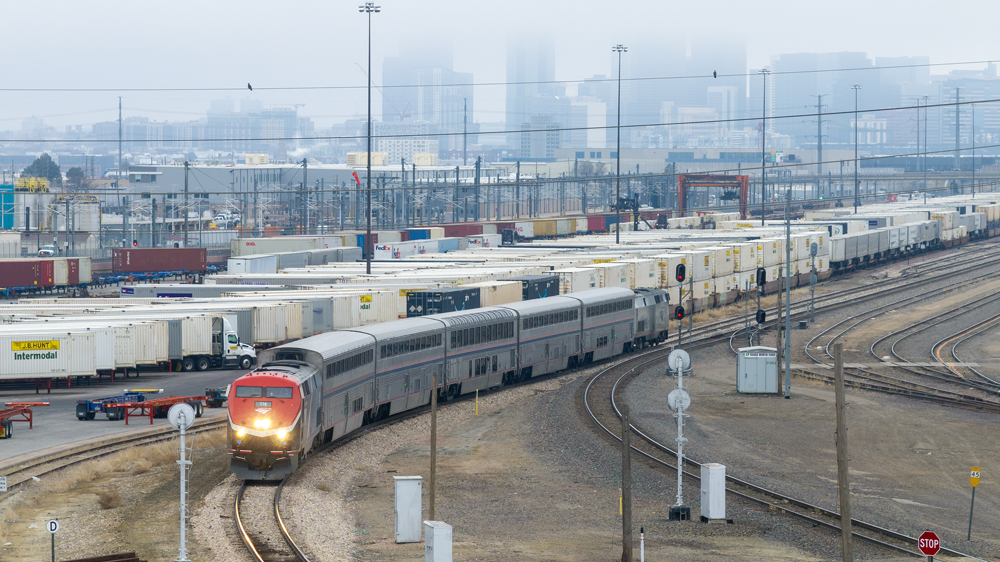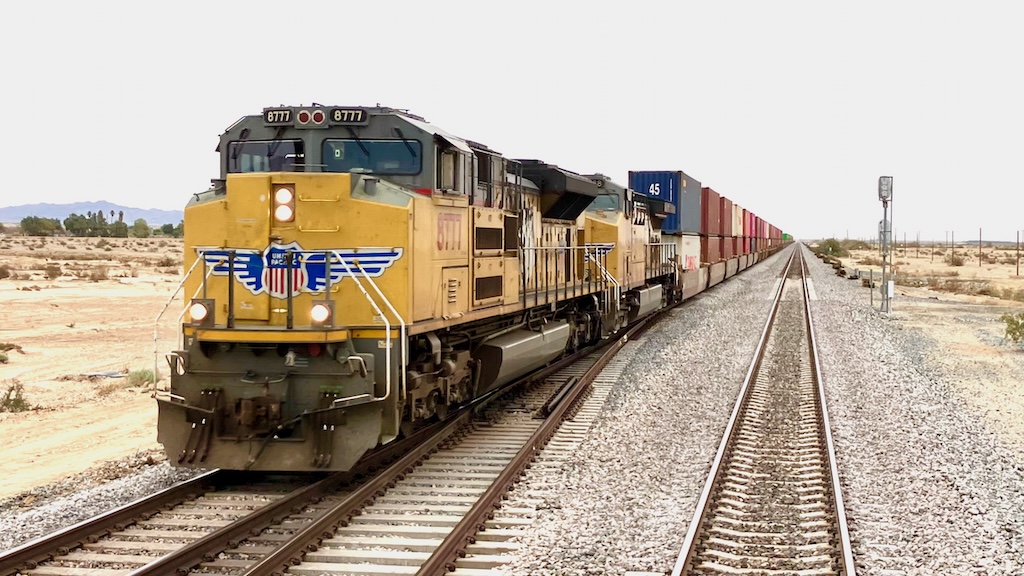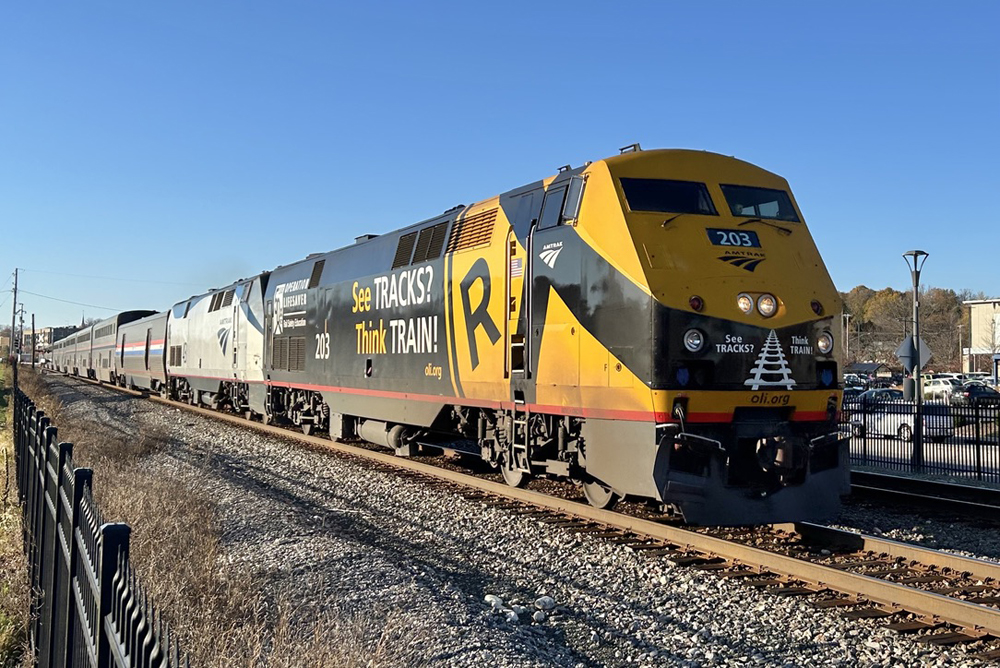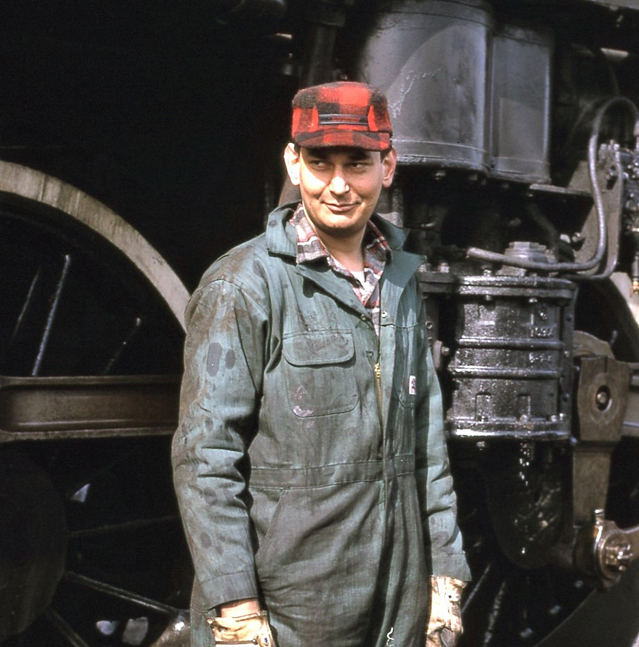
DENVER — A Colorado legislative committee has advanced a bill to help fund passenger rail and transportation projects.
By an 8-3 vote, the state House Transportation, Housing & Local Government committee passed SB24-184, which will assess a fee on rental cars to help pay for the development of projects including the Front Range (Fort Collins-Pueblo) and Mountain Rail (Denver-Craig) passenger projects. The bill originally called for a $2 to $3 increase in an existing rental car fee [see “Colorado looks to rental-car fee …,” Trains News Wire, March 15, 2024]; the amended version passed by the committee has recast the charge as a “congestion fee” to offset congestion and wear and tear on roads caused by rental vehicles.
The resulting money is intended to be used for local matching funds necessary to land federal funding for projects. The bill also calls for coordination between Denver’s Regional Transportation District, the Front Range Passenger Rail District, and the state Department of Transportation, to develop passenger service between Denver and Fort Collins, Colo., as the first part of the Front Range route.
“Once-in-a-generation federal infrastructure funding is giving us the opportunity to build an expanded passenger rail system that will create the transportation options Coloradans have been asking for,” Speaker Julie McCluskie said in a press release from Colroado House Democrats. “In addition to creating transit that reduces traffic and air pollution, passenger rail projects, including Mountain Rail, will create Colorado jobs and boost economies throughout the state.”














Wow, a congestion fee. A rental car fee or congestion fee is still a flat out tax on non-Colorado residents. The problem is the Denver/Boulder Democrats have the numbers and run the state.
These are the same politicians that passed/signed a law against mowing your lawn in the afternoon. The bad news is Colorado will soon be California East and I will have moved out.
Well maybe the federal Govt should just get out of the transportation funding/subsidizing role totally. Sell off the interstates to investors who would collect tolls, let the states, counties & cities levy gas taxes for their roads, privatize the Air Traffic Controllers, make the airports & airlines responsible for their own security TSA would only be for training & testing the quality of the security all the costs passed on to the flying public ONLY! This would reduce the deficit & create a more balanced transportation system.
Oh yes let the airlines run security? We know how well that was when 9-11 came around. It would be too easy for the bad guys to find lax locations just as they did at 9-11.
ROFL! Ya’ll are completely silly. Hotels, rental cars and airline tickets are all heavily taxed. They always have been. Back in the day, train tickets were also heavily taxed.
Also, rental cars are often licensed in states with low fees (Florida seems popular in my experience) so they’re not paying taxes to the states in which they are primarily operated.
When electric vehicles become more prevalent states (and the Feds) are going to have to have a Come to Jesus moment because the gas tax is the primary way transportation projects are funded. No gas, no road tax.
MIKE — So what’s your point? Tell me how governments (state and local) are going to fund tens of billions in passenger rail expenses by raising rental car taxes by $2 or $3.
There are only two ways government can afford passenger trains, capital and operating. (1) Cut the hundreds of billions of waste out of other programs. Or, (2) Continue to print money.
Raising taxes won’t do it, because there’s nothing left to tax.
Most car rentals are to non Colorado residents. These people do not vote in Colorado. Taxation without representation is the kind of taxation that helps insure those imposing the tax still get re-elected.
Let’s be clear, an actual _CONGESTION_ fee would be zero when there were no congestion.
How many rental cars driven how many miles will it take to fund a passenger train carrying how many people how many miles.
Rental cars as a funding source is an ADMISSION that way more people rent a car at Denver International Airport than will ever ride the train.
Let’s do the math, using my home state of Wisconsin as a metaphor. I buy a $50 R/T ticket on the Hiawatha. Which means that the ride is subsidized, roughly speaking, let’s pick a number, $65.00 in daily operational costs (not including capital improvements — those are off the books). My train leaves Amtrak MKE downtown and stops several minutes later at Amtrak MKA, General Mitchell International Airport. Somewhere between twenty-two and thirty-three General Mitchell airline passengers renting cars are needed to subsidize my ride to Chicago and back. For just daily O+M, not including the capital expenditures.
Capital expenditures such as the millions now being spent as we speak at Amtrak MKA station itself. If capital expenditures were included, how many rental cars would that be?
The point I’m trying to make is that creative taxation is an admission that our various governmental units have run out of regular taxation sources. Not just for Amtrak. Amtrak is the very least of the expenditures of a government that’s bankrupting itself. For every billion dollars spent on Amtrak, there’s hundreds of billion dollars that our government pours down the drain in return for absolutely nothing.
It’s not for absolutely nothing. It’s so the federal government can force their power over state rights and making the Richmen north of Richmond ever more powerful and rich.
Great post, Nathaniel Richards, thanks for your input.
I’m lucky enough not to have visited DeeCee or NoVa in 41 years, thank God, wish it were longer. However I have changed planes several times in recent years at BWI Baltimore-Washington or DCA Ronald Reagan. The wealth of that area “north of Richmond” sucked out of the rest of us makes me sick.
Interstate Highways originally relied on such a leveraging of greater mileage to lessor mileage too. To build the IH system, Federal fuel taxes were increased, resulting in higher taxes on daily driving over locally funded streets and county roads of a vastly larger route mileage than the IH system. Now almost everything is trying to pull down federal grants.